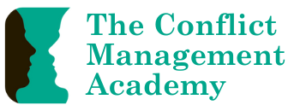This book caught my attention, as one of the mindset shifts we work on in REAL Conflict Coaching is the shift from certainty to uncertainty.
Jackson acknowledges the natural human tendency to want to avoid uncertainty. She explores the perils of certainty, explaining how our drive for knowledge and certainty actually reduces the very cognitive capacity that most broadens our mental horizons.
She also makes a very persuasive argument for the benefits of uncertainty, particularly in today’s complex and fast-changing world. She explains that:
…uncertainty plays an essential role in higher-order thinking, propelling people in challenging times toward good judgment, flexibility, mutual understanding, and heights of creativity. It is the portal to finding your enemy’s humanity, the overlooked lynchpin of superior team work, and the mindset most needed in times of flux.
She cautions that “it is not uncertainty that we should fear but a growing reluctance and perhaps a waning ability to seek nuance, depth, and perspective”. Even worse is the increasing tendency to make ignorance and uncertainty a goal in itself (e.g. “I don’t even want to know”).
This book shows us how to skilfully confront the unknown and how to seek not-knowing in the service of wisdom, wonder, and discovery. Chapters explore different kinds of uncertainty, the social side of uncertainty, and how to improve artificial intelligence by making it more uncertain.
The first chapter explores the dangers of knowing, and uses examples from research on surgeons, anaesthetists and chess players to illustrate the point. It introduces tools like ‘negative testing’ and “Fermi-izing” to widen and deepen our frame of understanding, and tips for becoming an adaptive expert.
The second chapter explores the usefulness of uncertainty for seeing things with new eyes. It discusses Alan Turing’s work on breaking the Enigma code, and examines the neuroscience of our tendency towards certainty (e.g. prediction errors, the role of dopamine and norepinephrine, curiosity). There’s also an interesting section about the impact of online search engines on our sense of certainty.
The third chapter covers the relationships between memory, sleep and knowledge. It considers Charles Darwin’s path towards a theory of evolution and the importance of ‘fallow time’.
Chapter four explores daydreaming and the brain’s default network, with examples of its importance for creativity and scientific discovery.
Chapter five covers the tensions between in and out groups, and how to encourage people to see others’ perspectives to increase tolerance and reduce prejudice.
Chapter six looks at the importance of conflict and diversity to challenge the delusion of homogeneity and group think. It uses examples from astronauts, mountaineers and juries.
The seventh chapter considers the upsides of uncertainty, especially for people who live in precarity. It explores their strengths such as adaptive intelligence, cunning, and agility. It also discusses the importance of reflection to be able to adapt to complexity and uncertainty
The final chapter considers the important role of uncertainty in improving artificial intelligence.
The content of this book is terrific, however I have to say that the writing style made it a struggle for me. The author tends to write in quite flowery prose and I found it distracting and sometimes hard to follow. It’s worth persevering though, as there is a lot to learn from the content.

